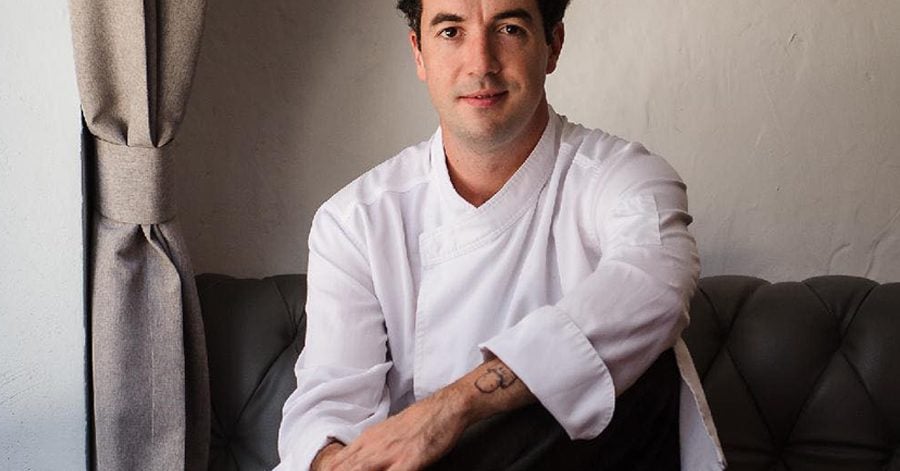Alexandru Dumitru opened his first restaurant, Anika, ten days before the pandemic outburst in Romania. It was a dead-end for the starting company and they dismissed the team for a week. But the co-founder and head chef started thinking and deployed technology to adapt to the new situation.
He created different e-commerce packages, to save the stock, then, once the panic settled, they launched a spin-off, the Anika Fried Chicken venture. Hopping on delivery apps and digital platforms set the project in a completely new direction. They did not plan it from the beginning, but they aim to develop the venue into a chain in the future.
“For Anika Fried Chicken we relied on delivery apps. We didn’t do it ourselves as it would’ve been too complicated, we had an average of 100 orders daily,” shares Alexandru.
The hospitality sector has taken a big hit during the pandemic. In Romania, all restaurants have been mostly closed or with limited access for over a year. Technology played an important role in helping the industry adapt to the “dining in” trend and see business in new ways. Some entrepreneurs shifted their business model to tap into new, unexplored, niches and audiences.
Restaurant owners had to close down their doors and depend on the delivery, but this created a series of digitizing opportunities from developing in-house websites and menus, to joining food delivery apps. Digital payments have also seen considerable growth.
Making “Dining in” experience as good as “Dining out”

Prior to the pandemic, many restaurants viewed online platforms and menus as a marketing tool. But when clients’ access was restricted, it became a necessity. The solution Gravity Web Ordering offered HoReCa entrepreneurs a digitizing tool that can add the ordering option to any website via a monthly subscription. “We tried to build a platform that was as easy to use as possible. It doesn’t need technical knowledge or new infrastructure,” says Catalin Simion, founder and developer at GravityLabs.
Tazz by eMAG was one of the startups in the delivery vertical that grew exponentially, as Bogdan Axinia, eMAG Ventures managing director, told the Recursive. The team developed the solution back in 2013, in Timisoara, under a different name – “Eu ce mananc”. Тhey rebranded during the pandemic. Tazz by eMAG claims to be the first platform to onboard restaurants without delivery in Romania.
“We’ve been customer-centric since the beginning and that was something that differentiated us on the market. Our ambition is to remain a great partner for all the players in the industry: from the entrepreneurs and business owners to the chefs, delivery men, and the end buyers,” shares Alin Serban, CEO of Tazz by eMAG. He adds their goal is to provide the best delivery experience to end customers and have ‘dining in’ become just as good as ‘dining out’. “It’s a big challenge, but we’ll make it happen,” says Serban.
In the smart payment niche, PaybyFace offered a solution for fast transactions between restaurants and customers. “We aim to provide small merchants and consumers a more convenient and secure payment method that enables them to sell online and offline goods and services on one super-app ecosystem using our innovative face recognition-based biometric payment system,” shares Mihai Draghici, founder and CEO of PaybyFace.
Тhe “no phone, no cash, no cards…just using your face” solution is facing the challenge of people’s hesitation to adopt new technologies. “It takes early-adopters and a higher appetite for taking risks to change the future of how things should work in our society to improve the customer experience delivered to end-users,” shares Mihai about the solution that he would like to see in cafes, bars, restaurants, hotels, pharmacies and grocery stores.
Investors’ support for the HoReCa startups

Restaurant owners and HoReCa entrepreneurs in Romania can also rely on the support of a few corporate initiatives to get them through the hardships.
“Hospitality was one of the most affected industries, so counseling to adapt to the post-pandemic reality was our focus,” shares Robert Agarici, the project manager of HoReCa Business Accelerator, which helps entrepreneurs in Romania with mentorship and grants between 2000-5000 euros. The accelerator is led by Innovation and supported by UniCredit Bank.
They are interested in three verticals:
- services (e.g., concepts of restaurants, cafes, bars),
- products (e.g., craft beer, kombucha, water with herbal infusions),
- tech solutions (e.g., booking applications, marketplaces, feedback applications).
According to Agarici, the pandemic has shown how fragile traditional businesses are. He thinks that digitalization is no longer a simple trend, but a ticket to development.
Factory by Raiffeisen Bank, the startup financing program, encourages the development of new businesses from the idea stage. The team shared that if the business idea is validated, the bank supports the startup with funds from a variety of sources to help its growth.
The program is structured on three pillars: entrepreneurial education, financing, and access to clients or international markets. The Startup Studio by Factory represents 6 weeks of intensive business classes, which can then lead to loans up to €50K.
“We had several calls with those concerned about decreased revenues to help them re-establish their activities and expenses, find out about government support, renegotiate their commercial contracts, and help them prepare a stronger comeback. We believe that we had a huge impact on our clients by facilitating this support group,” concludes the Factory by Raiffeisen Bank PR team.
The Raiffeisen Bank factory has seen a slight decline in the number of applications. They believe that some entrepreneurs are waiting to see how fast the economy is recovering after the pandemic before starting new business ventures.
But entrepreneurs like Alexandru Dumitru are looking for tools. “For fast service, we need some type of tech that could facilitate transactions between the restaurant and customers. I would love a tablet where the customer can order and pay, no more papers, no more bills, everything digital,” he shares. In time, restrictions will lessen, but the pandemic seems to have changed the landscape. E-commerce, delivery, and fintech solutions will become central revenue pillars in this sector.







